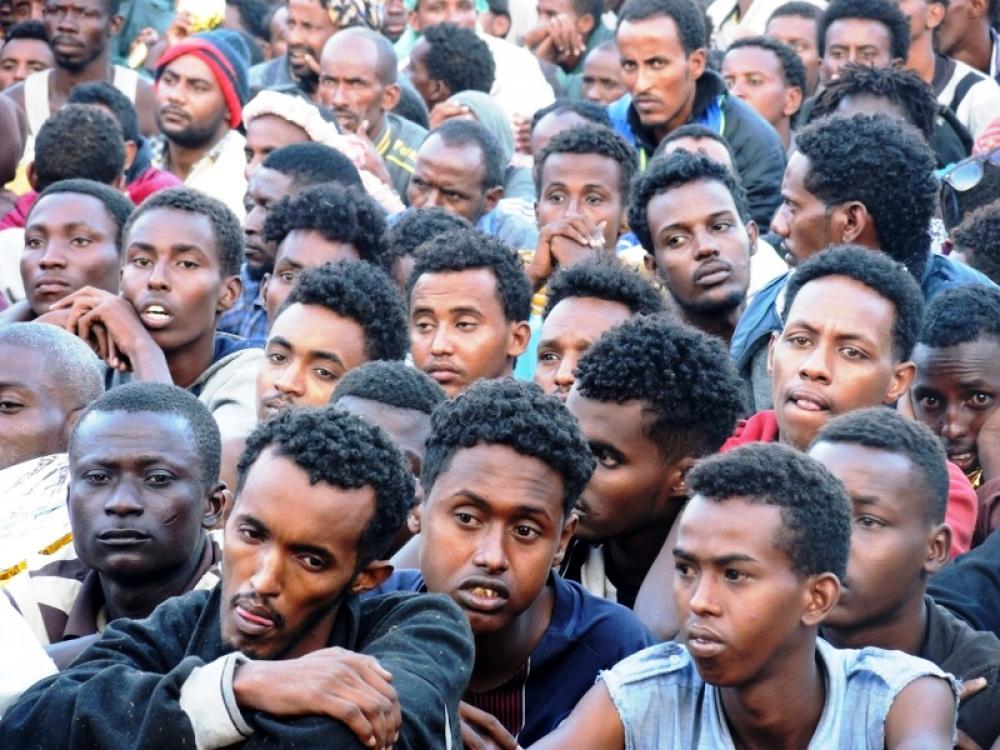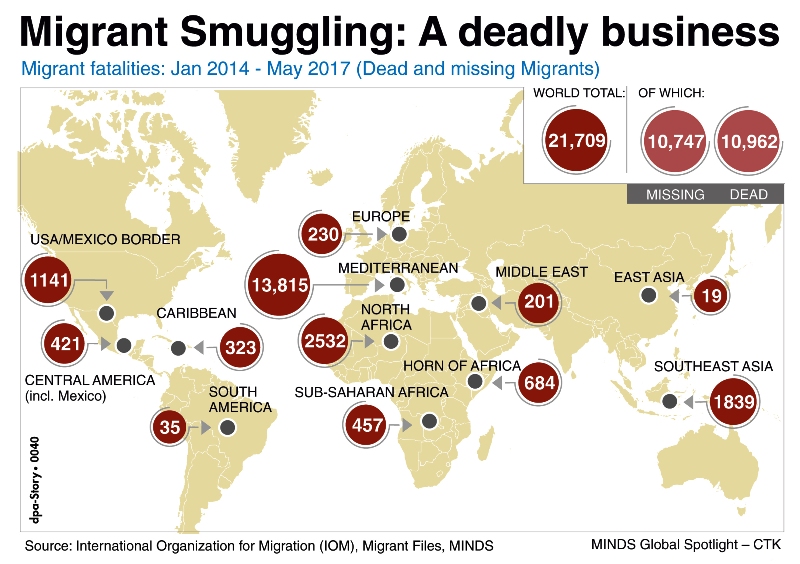EDN-Hub/DPA/ Just Earth News | @justearthnews | 05 Dec 2017, 06:28 pm Print

DPA
Agadez, Niger – Ibrahim Sorry’s dream was to live in Europe. When he survived the dangerous three-day journey from Niger through the Sahara, the 27-year-old man from Gambia thought he had almost reached his destination.
The dream turned into a nightmare
But once he crossed the border into Libya, Sorry was confronted with a three-month-long nightmare of illegal detention, extortion and torture.
Sorry was brought to a detention centre in the south-western city of Sabha where his captors demanded a ransom of 2,500 dollars.
But the young man, who struggled to make ends meet as a welder in Gambia, had given his last money to the traffickers who brought him across the Sahara.
“They hung me upside down and gave me electric shocks,” says Sorry about his captors.
The torturers repeatedly told him to call his family to ask for money.
Sorry was lucky. His uncle eventually scraped together the required amount.
“Those who can’t pay get killed. They don’t let anyone go,” recalls Sorry, who saw migrants being shot, starved to death or die of illnesses.
“They treat us worse than animals, without any humanity.”
The suffering of African migrants in Libya
After his release, Sorry lost the courage to continue his way to Europe.
He returned to Agadez, the Nigerien town from which he had started his trip through the Sahara, and is waiting in a transit centre of the International Organization for Migration (IOM) for his repatriation to Gambia.
The sheer horror that awaits migrants in Libya – from shocking abuses in detention camps to migrants being sold on slave markets – rang alarm bells on the sidelines this week of the fifth European Union-Africa summit, hosted in Ivory Coast.

The EU, United Nations and African Union agreed to evacuate migrants stranded in Libya, with the UN planning to fly 15,000 refugees back home by yearend.
According to the IOM, up to a million migrants are in conflict-torn Libya, waiting to cross the Mediterranean to Europe.
“Migrants who go to Libya … have no idea of the torture archipelago that awaits them just over the border,” says IOM spokesman Leonard Doyle. “There they become commodities to be bought, sold and discarded when they have no more value.”
Ibrahim Moussa, a psychologist from aid organization Italian International Cooperation (COOPI), which offers returnees in Nigerien transit camps psychological support, says he can immediately tell who was captured in Libya.
“Those people are mentally completely destroyed. It’s like there’s only an empty shell left.”
They suffer from severe psychosis, depression and post-traumatic stress disorder, Moussa explains. Many are suicidal.
The stories of female returnees are often even worse because they are generally held as sex slaves, he says. “We strongly assume that most are forced into prostitution until they die.”
Horrible acts against humanity
Only very few migrants are able to buy back their freedom, but despite all the horror stories, tens of thousands of Africans continue to brave the journey.
“We are trying to warn them of the dangers but only very few decide to stop the journey,” says IOM Niger director Guiseppe Loprete in the capital, Niamey.
The chance of a better future, however slim, weighs stronger than fear.
That’s what Mohammed Sheriff thought, when he left Liberia in the hope of finding a job in Europe. The 23-year-old was sitting on a boat bound for Italy when armed men posing as Libyan coast guards arrested him, demanding 2,500 dollars for his release.
“They hand you a mobile phone and demand you call your parents. They beat you to make sure you cry hard on the phone,” says Sheriff.
Sheriff, too, says he witnessed abuse, torture and arbitrary killings.
After many calls, his mother sold the family’s farmland to free her son.
Sheriff tried once more to cross the sea. Again, he was caught and this time thrown in a cell with about 300 migrants. When a riot broke out, he managed to escape.
Returning refugees to their countries
After many detours, Sheriff reached Agadez, from where he plans to return home – a difficult decision because it is associated with shame and many migrants owe relatives large sums of money they planned to repay from Europe.
The EU therefore wants to offer reintegration assistance and financial support to returnees from Libya.
Still, Sheriff has mixed feelings. “I am looking forward to seeing my mother, but she sold our land for me, and I return with nothing,” he says. “It feels like hell.”
- UN officials says UK’s newly passed ‘Safety in Rwanda’ bill is anything but safe
- Israel-Palestine war: UN rights office says mass graves in Gaza show victims' hands were tied
- Pakistan: UN experts express concern over lack of protection for minority girls from forced religious conversions, marriage
- Forty percent Pakistanis are currently living below the poverty line, says World Bank
- Hindu girl abducted in Pakistan, community members slam authority






